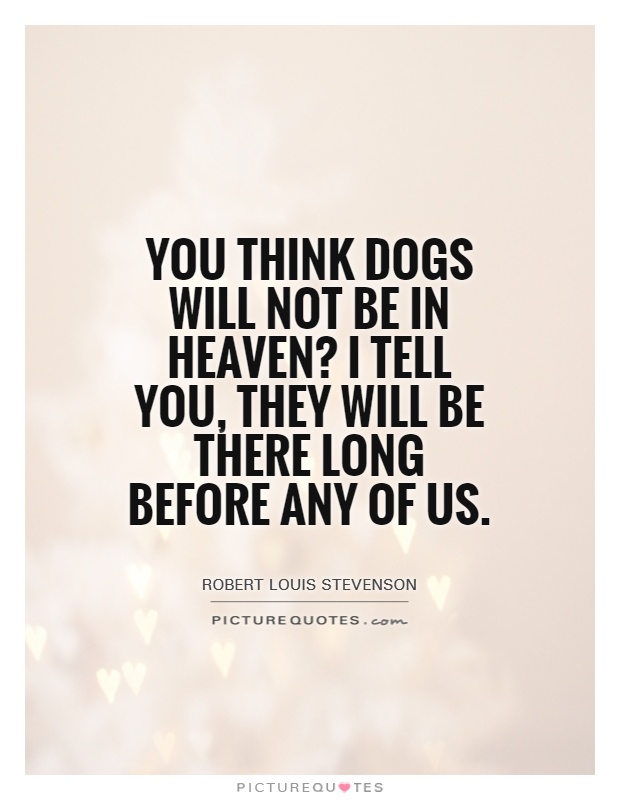You think dogs will not be in heaven? I tell you, they will be there long before any of us

You think dogs will not be in heaven? I tell you, they will be there long before any of us
Robert Louis Stevenson, the renowned Scottish novelist, poet, and travel writer, was known for his deep love and appreciation for animals, particularly dogs. His famous quote, "You think dogs will not be in heaven? I tell you, they will be there long before any of us," reflects his belief in the inherent goodness and loyalty of dogs, as well as his conviction that they deserve a place in the afterlife.Stevenson's admiration for dogs can be seen in many of his works, where he often portrayed them as faithful companions and symbols of unconditional love. In his novel "Treasure Island," for example, the character of Captain Flint's loyal dog, Cap'n, serves as a reminder of the bond between humans and animals. Stevenson's own pet dog, a Skye terrier named Bob, was also a constant presence in his life and inspired him to write the poem "To My Dog," in which he expresses his deep affection for his furry friend.
Stevenson's belief in the spiritual nature of dogs can be traced back to his childhood, when he was raised in a strict Calvinist household that emphasized the importance of faith and morality. While he eventually rejected many of the tenets of his upbringing, Stevenson retained a sense of wonder and awe at the mysteries of the universe, including the question of what happens to animals after they die.
For Stevenson, dogs represented a pure and innocent form of love that transcended the boundaries of human understanding. In his eyes, dogs possessed a kind of innate goodness that made them deserving of a place in heaven, where they could continue to bring joy and companionship to those who had loved them in life.












 Friendship Quotes
Friendship Quotes Love Quotes
Love Quotes Life Quotes
Life Quotes Funny Quotes
Funny Quotes Motivational Quotes
Motivational Quotes Inspirational Quotes
Inspirational Quotes